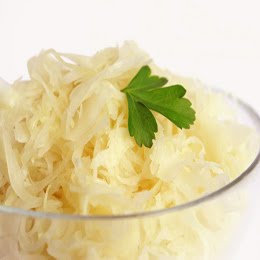 It’s simple: digestion is the key to good health. Good digestion is absolutely essential for optimal assimilation of the nutrients that we take in with our food. We Americans tend to think of eating food as fueling up and filling up, instead of what the act truly is- the taking in of the nutrients from which all future cells will be made. And those cells, of course, make up every single organ and system in the body. If you think about fermentation at all, you probably think about alcohol. But there are many other kinds of fermented foods such as yogurt out there. Foods that are labeled “pickled” are also fermented foods. Fermented food uses microorganisms to convert sugars into lactic acid, creating a signature sour taste.
It’s simple: digestion is the key to good health. Good digestion is absolutely essential for optimal assimilation of the nutrients that we take in with our food. We Americans tend to think of eating food as fueling up and filling up, instead of what the act truly is- the taking in of the nutrients from which all future cells will be made. And those cells, of course, make up every single organ and system in the body. If you think about fermentation at all, you probably think about alcohol. But there are many other kinds of fermented foods such as yogurt out there. Foods that are labeled “pickled” are also fermented foods. Fermented food uses microorganisms to convert sugars into lactic acid, creating a signature sour taste.
That sour taste which many people may find unfamiliar should not be equated with unhealthy or expired. In fact, including fermented foods in your diet a few times a week or more could be beneficial for your health.
- Miso. A paste made of fermented soy beans, it forms the base of soups or glazes.
- Sauerkraut. This familiar condiment is made of finely shredded fermented cabbage.
- Sourdough bread. Real sourdough bread is made with milk and other foods that have been allowed to ferment before making the bread dough.
- Kefir. A fermented drink made from milk.
- Yogurt. Yogurt includes live bacteria called probiotics.
- Kimchi. A traditional Korean dish made from pickled vegetables like cabbage or radish.
- Buttermilk. Buttermilk also includes probiotics.
- Natto. These fermented soybeans are a traditional Japanese breakfast dish.
- Poi. A fermented paste made from taro root.
- Tempeh. A cake made of fermented soybeans.
- Kombucha. A fermented tea.
Fermented foods help aid in digestion, so enjoying a spoonful of sauerkraut before a meal will go a long way. Goat’s milk is a healthy yogurt option if cows milk does you wrong. An added plus, consuming sour foods such as some of the ones above will help curb cravings…yippee!
